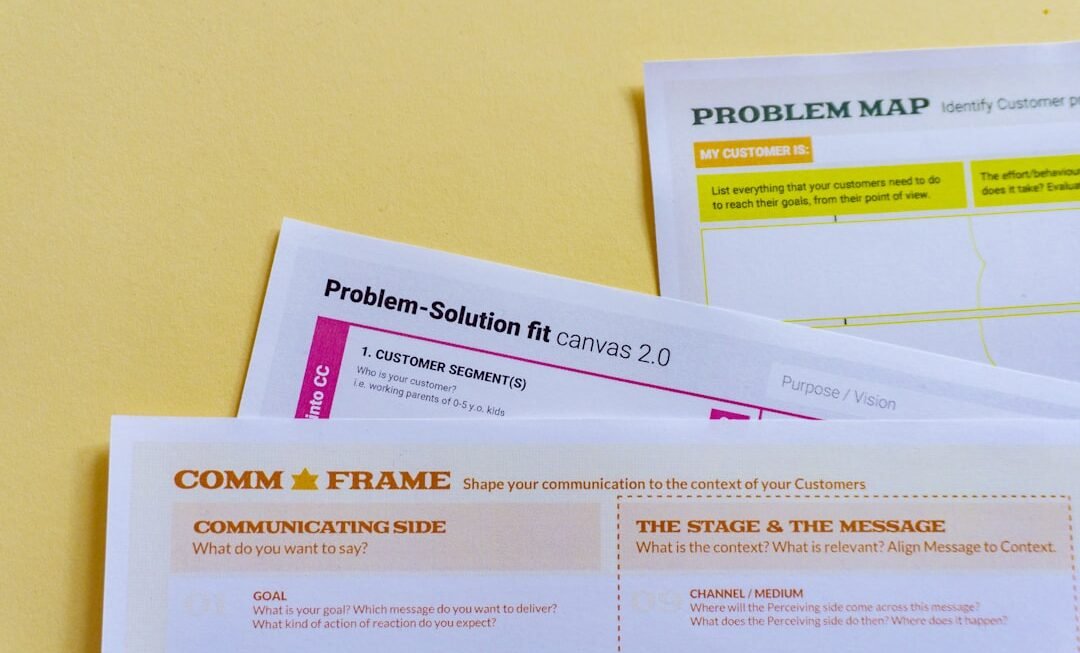In the rapidly evolving landscape of digital marketing, personalization has emerged as a cornerstone of effective engagement strategies. The ability to tailor marketing messages and experiences to individual preferences and behaviors is no longer a luxury; it is a necessity. As consumers are bombarded with an overwhelming amount of information, personalized marketing helps brands cut through the noise, fostering deeper connections with their audiences.
This approach not only enhances customer satisfaction but also drives loyalty and increases conversion rates. According to a study by Epsilon, 80% of consumers are more likely to make a purchase when brands offer personalized experiences, underscoring the critical role personalization plays in modern marketing. Moreover, personalization in AI-driven marketing leverages vast amounts of data to create targeted campaigns that resonate with specific segments of the audience.
By analyzing user behavior, preferences, and demographics, AI algorithms can identify patterns that inform marketing strategies. This data-driven approach allows brands to deliver the right message at the right time, significantly improving the chances of engagement. For instance, Netflix utilizes sophisticated algorithms to recommend shows and movies based on users’ viewing history, resulting in a highly personalized experience that keeps subscribers engaged and reduces churn rates.
Such examples illustrate how personalization not only enhances user experience but also drives business outcomes.
Key Takeaways
- Personalization in AI-driven marketing is crucial for creating a more personalized and relevant customer experience.
- AI-driven marketing strategies rely on data and machine learning to understand and target customers effectively.
- Leveraging data at scale is essential for personalization, and AI can help analyze and utilize this data efficiently.
- Implementing AI-driven marketing automation can streamline processes and improve efficiency in delivering personalized content.
- Dynamic content creation is key to personalization, and AI can help in creating and delivering dynamic content at scale.
Understanding AI-Driven Marketing Strategies
Personalized Marketing Efforts
Machine learning algorithms can process consumer data to identify trends and predict future behaviors, allowing brands to tailor their marketing efforts accordingly. For instance, AI can segment audiences based on their interactions with a brand, enabling marketers to create targeted campaigns that speak directly to the needs and interests of each segment.
Enhanced Customer Interactions
Additionally, AI-driven marketing strategies often incorporate natural language processing (NLP) to enhance customer interactions. Chatbots powered by NLP can engage customers in real-time, providing personalized responses based on previous interactions and inquiries.
Improved Efficiency and Effectiveness
This not only improves customer service but also gathers valuable data that can be used to refine marketing strategies further. By integrating AI into their marketing frameworks, companies can achieve a level of efficiency and effectiveness that traditional methods simply cannot match.
Leveraging Data for Personalization at Scale
The foundation of effective personalization lies in the ability to leverage data at scale. With the advent of big data technologies, marketers now have access to an unprecedented amount of information about their customers. This data can include everything from browsing history and purchase behavior to social media interactions and demographic details.
By harnessing this wealth of information, brands can create highly personalized experiences that cater to individual preferences on a large scale. To effectively leverage data for personalization, organizations must invest in robust data management systems that can collect, store, and analyze customer information efficiently. Customer Relationship Management (CRM) systems integrated with AI capabilities can help marketers track customer interactions across various touchpoints, providing a holistic view of each customer’s journey.
For example, Amazon uses its vast troves of customer data to recommend products based on previous purchases and browsing behavior, creating a seamless shopping experience that feels tailored to each user. This level of personalization not only enhances customer satisfaction but also drives repeat purchases and increases average order value.
Implementing AI-Driven Marketing Automation
Marketing automation powered by AI is revolutionizing how brands engage with their customers. By automating repetitive tasks such as email campaigns, social media posting, and lead scoring, marketers can focus on strategic initiatives that require human creativity and insight. AI-driven marketing automation tools can analyze customer behavior in real-time, allowing for dynamic adjustments to campaigns based on user interactions.
For instance, if a customer opens an email but does not click through, an automated system can trigger a follow-up message tailored to encourage further engagement. Furthermore, AI-driven marketing automation enables hyper-targeted campaigns that adapt to individual user preferences over time. By continuously learning from customer interactions, these systems can refine their messaging and timing for maximum impact.
For example, a travel company might use AI automation to send personalized travel recommendations based on a user’s past trips and search history, ensuring that the content is relevant and timely. This level of automation not only enhances efficiency but also significantly improves the overall effectiveness of marketing campaigns.
Creating Dynamic Content for Personalization
Dynamic content is a powerful tool in the arsenal of AI-driven marketing strategies. Unlike static content, which remains unchanged regardless of the audience viewing it, dynamic content adapts based on user data and behavior. This means that different users can see different versions of the same content tailored specifically to their interests and needs.
For instance, an e-commerce website might display different product recommendations or promotional banners based on a user’s previous purchases or browsing history. The creation of dynamic content requires sophisticated algorithms that can analyze user data in real-time and adjust content accordingly. This could involve changing images, text, or even entire layouts based on user preferences.
For example, Spotify uses dynamic playlists that adapt to users’ listening habits, curating music selections that feel uniquely personal. By leveraging dynamic content in their marketing efforts, brands can create more engaging experiences that resonate with their audience on a deeper level.
Utilizing Predictive Analytics for Personalized Marketing
Predictive analytics is revolutionizing the world of personalized marketing. By leveraging statistical algorithms and machine learning techniques, businesses can predict future customer behaviors based on historical data, allowing them to stay one step ahead of their customers’ needs and preferences.
### Unlocking Future Trends
Retailers can utilize predictive analytics to identify which products are likely to be popular in the coming months based on past sales trends and seasonal patterns. This involves collecting and analyzing vast amounts of data from various sources, including customer transactions, website interactions, and social media engagement.
### Proactive Personalization
By synthesizing this information, brands can create targeted marketing campaigns that align with predicted consumer behavior. For instance, a fashion retailer might analyze past purchase data to predict which styles will be in demand during an upcoming season, allowing them to tailor their inventory and marketing efforts accordingly. This proactive approach not only enhances personalization but also optimizes resource allocation and inventory management.
Enhancing Customer Experience through Personalization
Personalization is fundamentally about enhancing the customer experience by making interactions more relevant and meaningful. When customers feel understood and valued by a brand, they are more likely to engage positively with it. Personalized experiences can take many forms, from tailored product recommendations to customized email communications that address individual preferences.
For instance, beauty brands often use quizzes to gather information about customers’ skin types and preferences, subsequently providing personalized product suggestions that cater specifically to those needs. Moreover, enhancing customer experience through personalization extends beyond just marketing communications; it encompasses every touchpoint in the customer journey. Companies like Starbucks have successfully implemented personalized loyalty programs that reward customers based on their purchasing habits and preferences.
By offering tailored rewards and promotions, Starbucks not only increases customer satisfaction but also fosters brand loyalty as customers feel recognized for their individual choices.
Overcoming Challenges in AI-Driven Personalization
Despite its numerous benefits, implementing AI-driven personalization is not without challenges. One significant hurdle is data privacy concerns; as consumers become increasingly aware of how their data is being used, brands must navigate complex regulations such as GDPR and CCPA while still delivering personalized experiences. Striking the right balance between personalization and privacy is crucial for maintaining consumer trust.
Another challenge lies in the integration of disparate data sources into a cohesive system that allows for effective analysis and application of insights. Many organizations struggle with siloed data across different departments or platforms, making it difficult to create a unified view of the customer journey. To overcome this challenge, companies must invest in advanced data integration solutions that enable seamless access to customer information across all touchpoints.
By addressing these challenges head-on, brands can unlock the full potential of AI-driven personalization while ensuring compliance and maintaining consumer trust.
Measuring Success and ROI of Personalized Marketing
To justify investments in AI-driven personalization strategies, organizations must establish clear metrics for measuring success and return on investment (ROI). Key performance indicators (KPIs) such as conversion rates, customer retention rates, and average order value provide valuable insights into the effectiveness of personalized marketing efforts. Additionally, tracking engagement metrics such as click-through rates and time spent on site can help marketers assess how well their personalized content resonates with audiences.
A/B testing is another effective method for measuring the impact of personalization initiatives. By comparing the performance of personalized campaigns against non-personalized counterparts, marketers can gain insights into what works best for their audience. For example, an online retailer might test two versions of an email campaign—one featuring personalized product recommendations based on past purchases and another with generic offers—to determine which approach yields higher engagement rates.
By continuously monitoring these metrics and adjusting strategies accordingly, brands can optimize their personalized marketing efforts for maximum impact.
Case Studies: Successful AI-Driven Personalization Campaigns
Numerous brands have successfully harnessed AI-driven personalization to enhance their marketing efforts and achieve remarkable results. One notable example is Coca-Cola’s “Share a Coke” campaign, which utilized data analytics to personalize product labels with popular names across various markets. This initiative not only resonated with consumers but also led to a significant increase in sales as customers sought out bottles featuring their names or those of friends and family.
Another compelling case study is Spotify’s “Discover Weekly” feature, which uses machine learning algorithms to curate personalized playlists for users based on their listening habits. This feature has proven immensely popular among users, driving engagement and increasing subscription rates as listeners eagerly anticipate their weekly music recommendations tailored specifically for them.
The Future of AI-Driven Marketing and Personalization
As technology continues to advance at an unprecedented pace, the future of AI-driven marketing and personalization holds immense potential for innovation and growth. Emerging technologies such as augmented reality (AR) and virtual reality (VR) are poised to revolutionize how brands engage with consumers by creating immersive experiences tailored to individual preferences. For instance, beauty brands may leverage AR technology to allow customers to virtually try on makeup products before making a purchase decision.
Furthermore, advancements in natural language processing will enable even more sophisticated interactions between brands and consumers through voice-activated devices and chatbots. As these technologies evolve, marketers will have new opportunities to deliver hyper-personalized experiences that resonate deeply with audiences across various channels. In conclusion, the integration of AI into marketing strategies has transformed how brands approach personalization.
By leveraging data analytics, predictive modeling, dynamic content creation, and automation tools, companies can create tailored experiences that enhance customer satisfaction while driving business growth. As we look ahead, embracing these innovations will be crucial for staying competitive in an increasingly personalized digital landscape.












